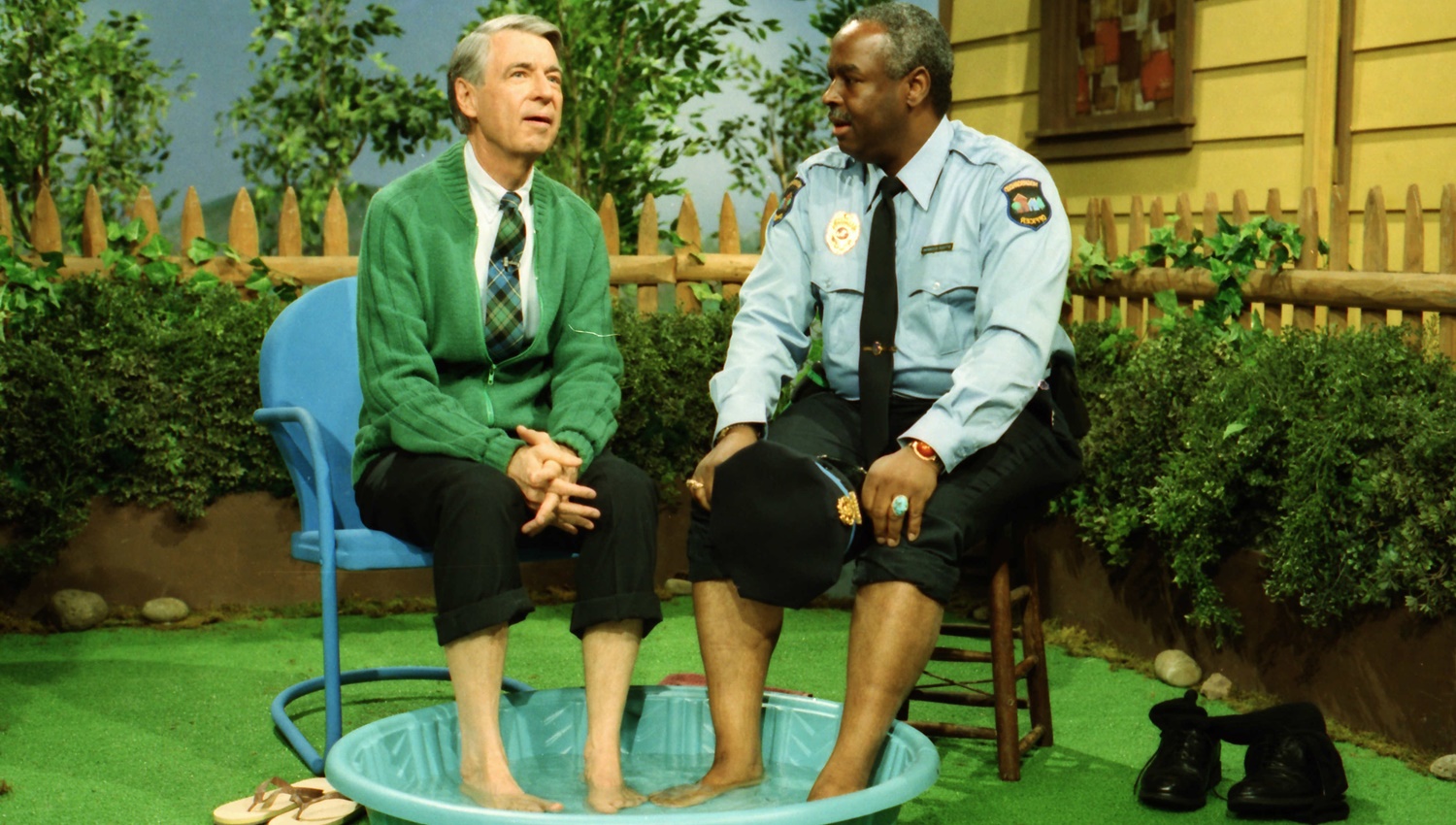There has probably not been a more committed public figure in defending children and voicing their needs than Fred Rogers, the man who brought the television show, “Mr. Rogers’ Neighborhood” into American homes for 30 years to talk to children about everything. He could make children feel good about who they are, and be reassured about things they might be worried about—all done in a soft, matter-of-fact way using play, song, puppets and mini-dramas. No subject was off limits, including death, illness, and national tragedy. He demonstrated that when such things are discussed in ways that children can comprehend, ask questions, and learn, they can be guided toward valuable means of coping.
Mr. Rogers’ childhood experiences likely influenced his thoughts and ideas about children and his choices for professions as an adult, in that he was often sick (scarlet fever, for example) and had long periods of time when he used his own imagination to entertain himself; he was introspective, and thought about existential concerns; and he was bullied some at school (“Fat Freddie”). As an aside, he was very proud that he had kept his weight at 143 all his adult life—showing him that he had some control over his own life. His playfulness is shown in his relating the number 143 to an address for a puppet on his show, and one of his messages, “I love you.” (I has 1 letter, love has 4 letters, and you has 3 letters).
Captures the essence of what Fred Rogers was about in this film
The documentary was in the hands of Morgan Neville (writer/director of Best of Enemies: Buckley vs. Vidal, and 20 Feet from Stardom), an accomplished documentarian who captures the essence of what Fred Rogers was about in this film. It moves at a good pace, bringing in Rogers’ family, friends, and associates to give life to the man and his work. I was especially struck by Yo-Yo Ma (famed cellist) telling about his first meeting with Rogers, who immediately engaged him, got him on his show, and who later performed at his memorial service.
I was also moved by Neville’s including the part where Rogers pulls in “Officer Clemmons”, a black police officer on the show but an opera singer/actor/playwright in real life, to share a wading pool with him just when the ‘70’s civil rights struggles were ongoing, a main bone of contention being “blacks’” rights to swim in “whites’” pools. Mr. Rogers talks him into cooling his weary feet, lends him a towel, and helps him dry off his feet.
Fred Rogers felt strongly about television being a model and teaching tool for children, particularly in his criticism of its frenetic pace and introducing super heroes to children, which were to him, a distorted fantasy that was misguiding for children. He decried the fact that television for children was far too busy and loud, not allowing for contemplation. Rogers purposively used silence as a tool in his programs.
The film has many accounts by Rogers’ family, friends, and colleagues, talking freely about the man, how they saw him, and what he taught them. It was interesting to hear about some of the fantasies about him—that he was gay, that he was a former Navy Seal, that he had tattoos—all of which seem to have been projections from people’s minds.
Final Thought
An inspiring account of a man who dedicated his life to teaching and modeling good principles for children.

